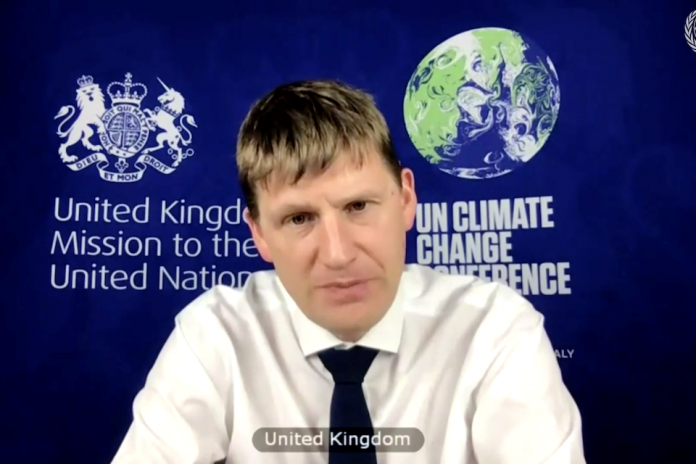Thank you very much, Mr. President. Let me begin by thanking Ambassador Dang Dinh Quy for his update and also to SRSG Shearer and USG Lowcock. Their briefings today provided a stark illustration of the dire and deteriorating humanitarian situation faced by millions of South Sudanese, as well as the urgent need for the full implementation of the Peace Agreement. I take what David Shearer said about the fact that the violence is by no means as bad as it was previously, and that is a mercy, but it is a sad and profound reality that over two years since the Peace Agreement and one year since this Council visited Juba, millions of South Sudanese are yet to see real peace dividends.
This year, we’ve seen the declining food security picture affecting millions and catalysed by subnational violence, slow implementation of the Peace Agreement and record flooding. As Mark Lowcock has been clear, the latest Integrated Food Security Phase Classification (IPC) analysis, released on Friday, showed that there is likely to be a famine occurring in Western Pibor, and thousands more people living in famine like conditions in five other counties.
Now, colleagues, resolution 2417 places an onus on this Council to take action when we see a clear link between conflict and food insecurity. This is unmistakably the case in South Sudan.
The situation will only worsen if we do not act. Now is the time for to step up and show leadership. The United Kingdom is one of the major humanitarian donors in South Sudan. This October, we committed a further $10 million in assistance in addition to our humanitarian aid spend, which last financial year has totaled $218 million. But colleagues, international support and humanitarian aid and cannot solve this alone. Ultimate responsibility lies with South Sudan’s government. And it’s a great shame that, again, the representative of South Sudan has not made a rule 37 request to be with us in this Council today as we discuss the plight facing millions of his countrymen.
We call on the government of South Sudan to accept the gravity of the situation, support the release of the full IPC analysis, and to cooperate and provide unfettered access to humanitarian partners. Efforts to impede the IPC process help nobody and although humanitarian aid is crucial, the bottom line is that this crisis can only be resolved if the South Sudan’s leaders show political will.
Now, Mr. President, we must also recognise the manmade nature of this crisis. Successive cycles of violence, have resulted in forced civilian displacement, abductions and notable increases in sexual and gender based violence. We welcome the positive steps taken to build state-level institutions, and we commend the commitment last week to finalise state and county level appointments. This is a significant step. However, we need to ensure that these structures deliver tangible, positive impacts on people’s lives, and governors and state officials must ensure unfettered humanitarian access as an immediate priority.
Mr. President, stability is vital. It can only be achieved through a fully inclusive process. We welcome the recent recommitment by non signatories of the Peace Agreement to the Cessation of Hostilities Agreement, and we call on parties to continue to engage constructively in the Rome process.
But let me repeat our call to South Sudan’s leaders to ensure the full, equal and meaningful participation of women in this process.
Mr. President, the fact that famine is likely to be occurring should be a wake up call to us all. At this moment of renewed crisis we call on all parties to redouble efforts to realise lasting peace and stability. It is therefore vital that UNMISS is able to carry out its mandate unhindered. Bureaucratic and physical impediments are a direct contravention of the Peace Agreement, the status of forces agreement and international peacekeeping norms.
In closing, Mr. President, as we look to the end of South Sudan’s first decade as an independent nation, our hope remains that a partnership can be forged between the donor community, the United Nations and South Sudan’s government and that 2021 will see a renewed effort to help end this humanitarian catastrophe. South Sudan’s government need to see the donor community and the UN as partners to help them to resolve this crisis. South Sudan’s leaders need to put their people first.
Thank you, Mr. President.







